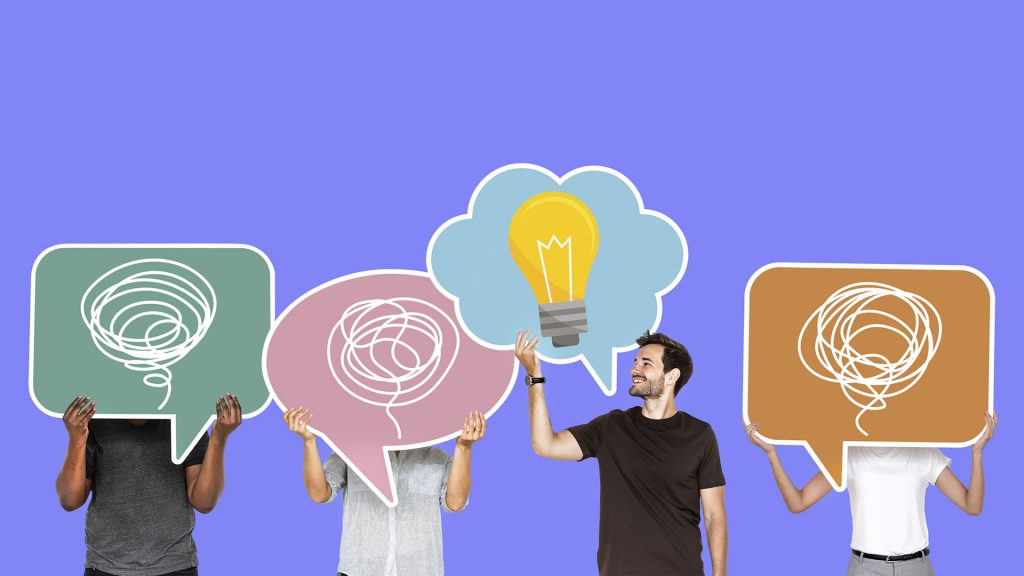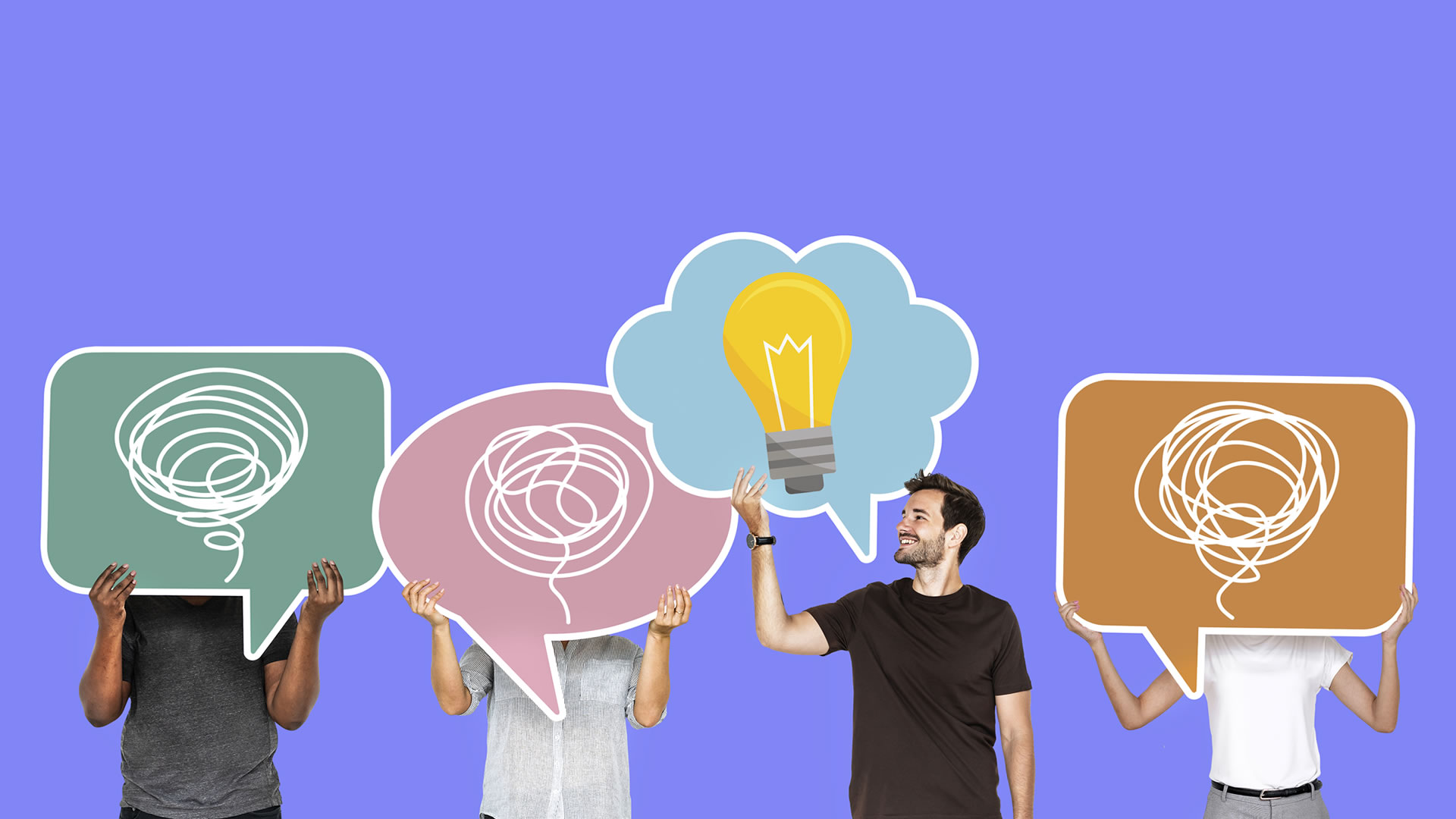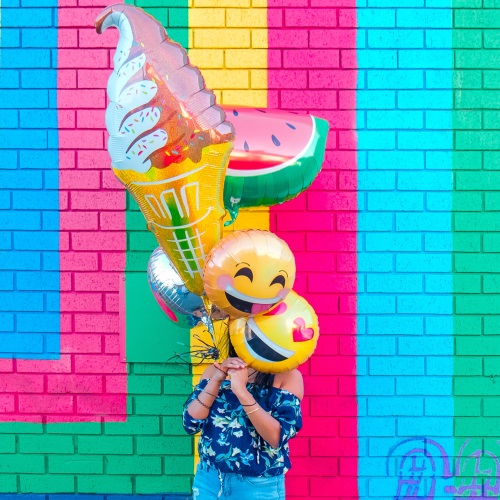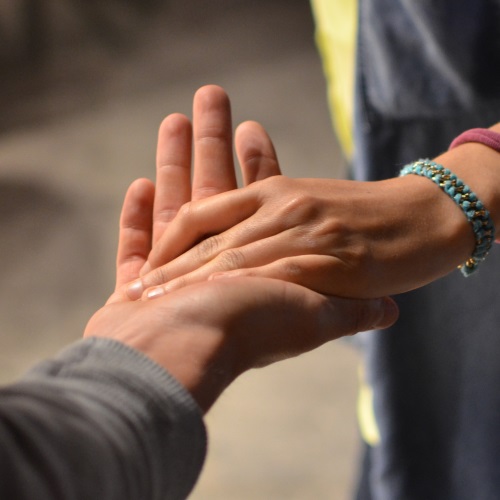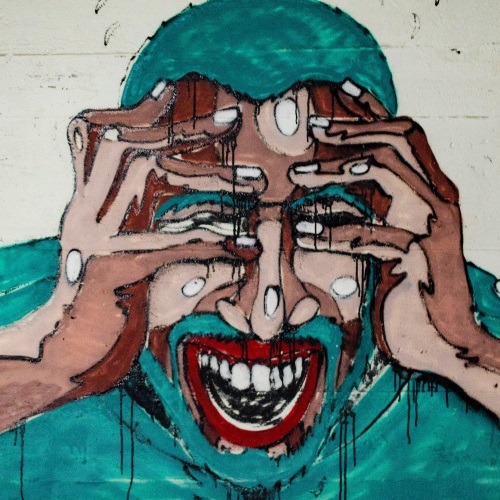What is the first thing that comes to your mind when you hear the word well-being? Probably you associate it with feeling happy and carefree, with having good physical and mental health; and with having friends to share experiences with. Well, our well-being has to do with a series of variables that can determine it and that can help you feel better in your daily life.
Martin Seligman (2011), the precursor of positive psychology, defines well-being as a construct that depends on 5 dimensions: positive emotions, engagement, relationships, meaning, and accomplishment. Before explaining what each of these dimensions consists of, it is important for you to know that well-being is dynamic, which means that it can vary at different times in your life and that you can improve your perception of it with hard work.
Here are the 5 dimensions of well-being proposed by Seligman (2011) and we´ll give you different tools to work on each one of them.
Positive emotions: they allow us to feel pleasure and satisfaction in our daily life, whether at a physical, intellectual or psychological level. An example could be the feeling of being happy or content or the optimism and satisfaction with life.
- Give yourself a daily treat: Every day, give yourself a treat that you usually don´t allow yourself to have. Write it on a post-it the night before and put it in a place where you can remember it.
- Start a daily practice of mindfulness through activities that can help you be in the present (meditation, breathing, crafts, exercise... anything that helps you focus in the present moment).
- Every night, be thankful for one or two things that went well for you during the day.
Engagement: is the ability that we have to achieve harmony in life in general or with the different activities that we do letting us concentrate and be immersed in them. When this happens, we forget for a moment about our surroundings, and time passes without realizing it. We also experience satisfaction while we do these activities and after we finish them.
- Think of an activity that you have to do every day that you don't like. Now think about a strength that you have noticed or that you have been told you have. How can you use this strength to approach that daily activity?
- Have you noticed activities where you feel like you are "flowing" while doing them? Put them on your calendar and in your daily routine.
Relationships: the relationships we have with others are very important to us, and can help us cope with difficulties as well as being a source of support and a source of valuable and positive experiences.
- Intentionally and consciously be kind to the people around you.
- Think of a person you used to be very close to and with whom you have not spoken recently. Call them and get back in touch.
- Openly express gratitude to the people who are significant to you. Talk to them, write to them and communicate with them through the channel you like the best.
- Intentionally allocate quality time to the people you love. The more frequent, the better.
Meaning: it has to do with the experience of belonging or serving something greater than oneself: humanity, the planet, nature, science, knowledge, the universe, the spirituality. It has to do with the meaning, not only of life in general terms but of every activity, every task, every conversation and every encounter.
- Remember The Little Prince: "only with the heart can one see well; what is essential is invisible to the eye". What does this phrase say to you? Now identify what "the essential" is for you.
- Imagine if grades disappeared at the University and it was decided that there would never again be numerical or alphabetical grades. What would drive you to study, to participate in class or to learn?
- Think about what ideals you identify with: justice and equity, environmental sustainability, honesty and integrity? Define what actions in your daily life are consistent with your ideals.
- Imagine that many years from now, 30 or 40 years from now, someone will be talking about you. What would you like them to say, how would you like to be described, what would you like to be remembered for? Write your own manifesto based on these questions.
Achievement: refers to having the experience of winning, achieving and attaining; regardless of the pleasure it generates or how transcendental it is for life. Specifically, the perception of achievement is experienced when we retrospectively evaluate the goals and objectives we have reached.
- For one week, write down at least three things that went well during the day. It is important that you don't just think about them, writing them down will help you identify reasons to be proud of yourself.
- Share your goals and objectives with people close to you and ask them to help you achieve them. For example, if you want to start exercising, ask a friend to go to the gym with you; or if you want to learn to play an instrument, ask your circle of friends where you can do it.
- Train yourself in time management and organization skills. HERE you will find a list of workshops that will help you.
And finally, two general recommendations that will undoubtedly help you to increase your well-being:
1-) Take care of your body with balanced nutrition, physical activity, and sleep habits that allow you to have a good rest.
2-) Invest in experiences more than in objects. Give your partner a trip to a special place and invite your friends to a place they like, experiences give more happiness than material objects.
References: Seligman, M. (2011). What is Wellbeing. Flourish (19-44). Free Press.
Créditos
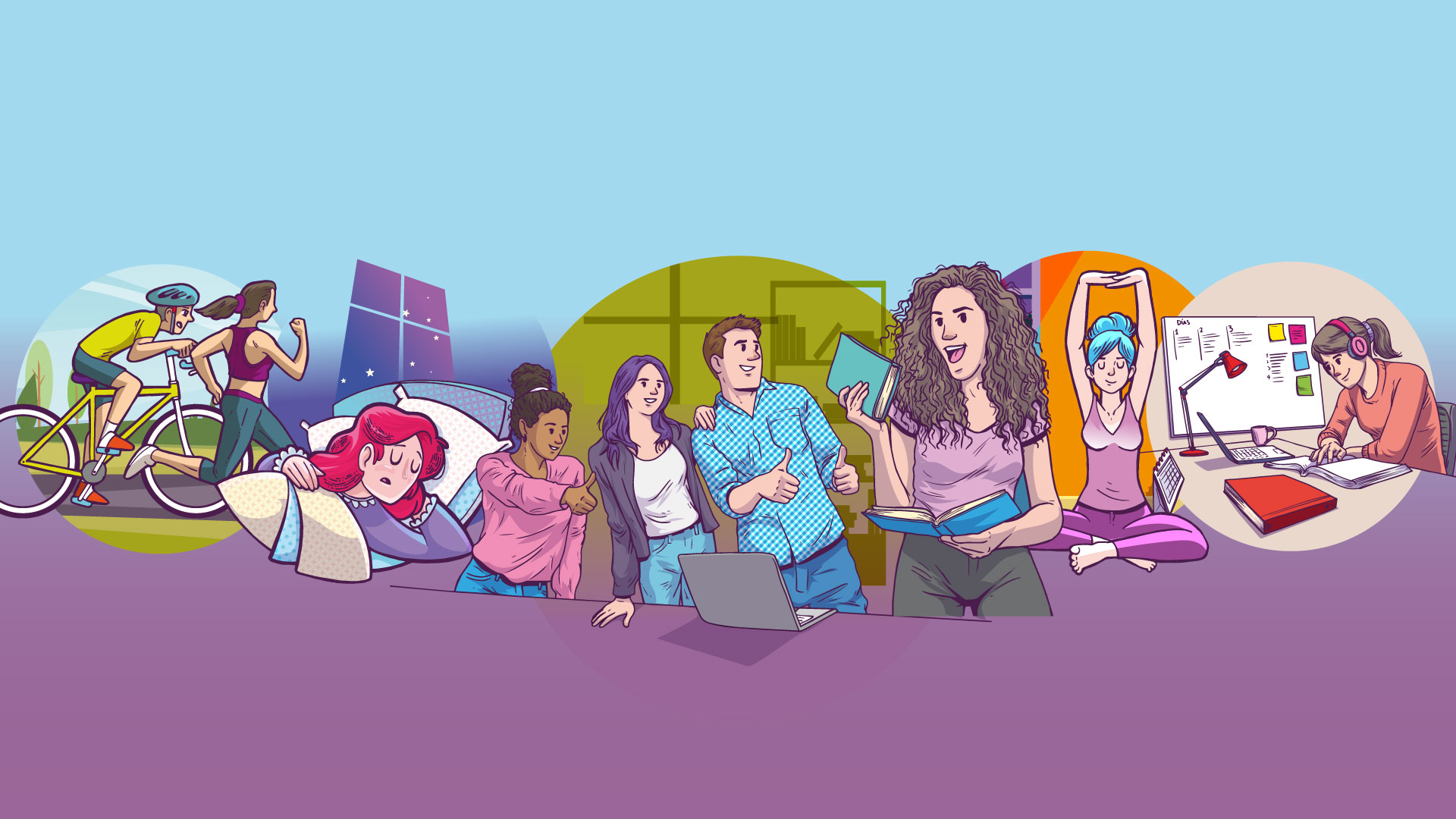 |
Fuente: Comunicaciones - DECA de Estudiantes |
| Autoras: Jenny Caro y Ángela Patiño Traducción: Laura Victoria Villamil |

